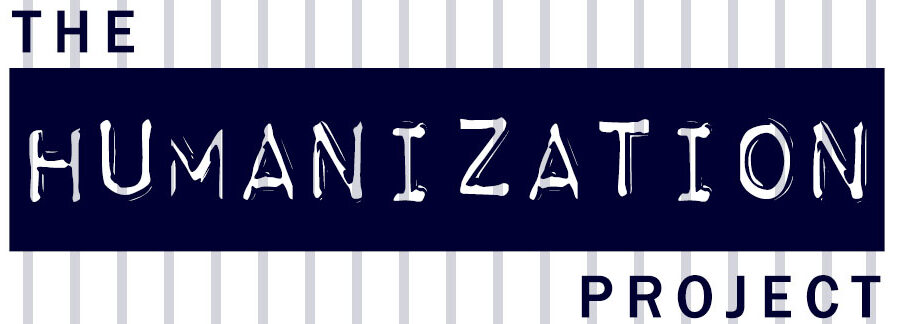
Meet Your Neighbor: Mark Baker
"A Story of Finding Community & Acceptance in Prison"
written by Taj Mahon-Haft, in partnership with ACLU of Virginia
No prison sentence is easy. Mark Baker’s was even harder than most.
“Having to navigate and endure serving a double prison sentence as both male and female in one body,” recalls Mark Baker, “[meant that I] had to sacrifice my true self and way of being just for the sake of making other men comfortable and not making myself a target.”
As long ago as he could remember, Mark was told he was “too pretty to be a boy” and abused by influential older men close to him. By 25, he had transitioned from taking a girlfriend to prom in rural Tennessee to living openly as a gay man, but he never was in the same place or with the same person for very long.
Mark was shaped by growing up with few resources but lots of love. His father imparted naturalist wisdoms and his mother held the family together, relying on an outhouse, “camping” for weeks when utilities couldn’t be paid, and visiting the “castle” where his father was locked up in the 1970s.
Mark heard similar comments at school. “I remember my 5th grade teacher telling me in front of the whole class to not pet the class bunny rabbit because she didn’t want me giving it lice,” says Mark. “‘Long hair on boys causes lice,’ she would say.”
Becoming a flight attendant gave Mark his ticket out of Sweetwater, Tennessee. Wandering between states and parties, all his keepsakes fit in a suitcase in the hotel room where he was living.
When an anger-, insecurity-, and alcohol-fueled outburst that hurt no one landed him in front of a judge, Mark got 25 years he didn’t know how to handle. He thought of his father, whose incarceration he had lived through as a child.
Mistreatment and apathy conditioned Mark to keep it all inside while keeping others out. That all changed when Mark began working with Jonathan Mills in the kitchen, who he bonded with by singing songs from The Little Mermaid together.
“I didn’t expect Mark to end up such a good friend: I was honestly hoping to ‘get in good’ with the cooks so I could eat well,” Jonathan laughs. “But after getting to know Mark, I realized how true of a soul he is. If all he had was one soup left in his box, he’d make sure whoever was hungry ate it, even if that person would talk about him behind his back. That’s just who Mark is.”
For Mark, the experience of being unconditionally accepted by another man put him on a path to accepting himself. One true friendship snowballed into community. Applying the resourcefulness his childhood had taught him, Mark crafted delectable holiday prison feasts from gas station ingredients like ramen, cheese sauce, spicy pickles, and extra laughter.
For the first time, community gave Mark what he had never had before: the safety to embrace his gender nonconformity.
“Speaking it aloud for the first time and feeling the truth of the words that had been locked inside me for so long was the most euphoric high I have ever felt,” recalls Mark. “I braced myself for rejection, but all I got was the acceptance I’d been waiting my whole life for.”
When Mark’s mother passed during COVID, he used his grief and newfound voice to help others process similar trauma,volunteering for an educational program, counseling gender nonconforming youth,and publishing essays and poems in numerous issues of Virginia Tech’s journal Unlocked: Art and Experiences from Inside Virginia’s Prisons.
“Seeing my grief laid bare and in print showed me that I do have a voice,” Mark explains, “I just had to be brave enough to speak up and say: This is me and what I am going through… And it matters.”
When Mark walked out of Beaumont Correctional Center on September 21, 2023 after nearly two decades inside, he walked into the embrace of onetime-kitchen buddy Jonathan and his partner Crystal, who had both driven hundreds of miles each way to be there. They had dinner with Jonathan’s extended family before seeing Taj, another friend Mark had made inside.
“I was so afraid to leave the safety I’d come to know behind the fences and razor wire, but seeing this friend I made inside so happy and now embracing his freedom gave me hope,” says Mark.
“We are a community of the forgotten… the unwanted…the misunderstood. We are human beings who came together and formed bonds forged in the worst of circumstances,” Mark describes in a poem stirred by freedom.
Mark is back in Sweetwater, but this time he has a sense of community that eluded him as a child. He cooks for his aging father, visits his mother’s grave, volunteers at the soup kitchen with generations of cousins and friends, and accompanies the family to the same church’s events – now perfectly comfortable in his own skin.
For Mark, getting free was about more than just leaving prison.
“Finally, it is my choice. I choose not to feel shame and embarrassment [for who I am],” he says.
Finally, Mark is free.
